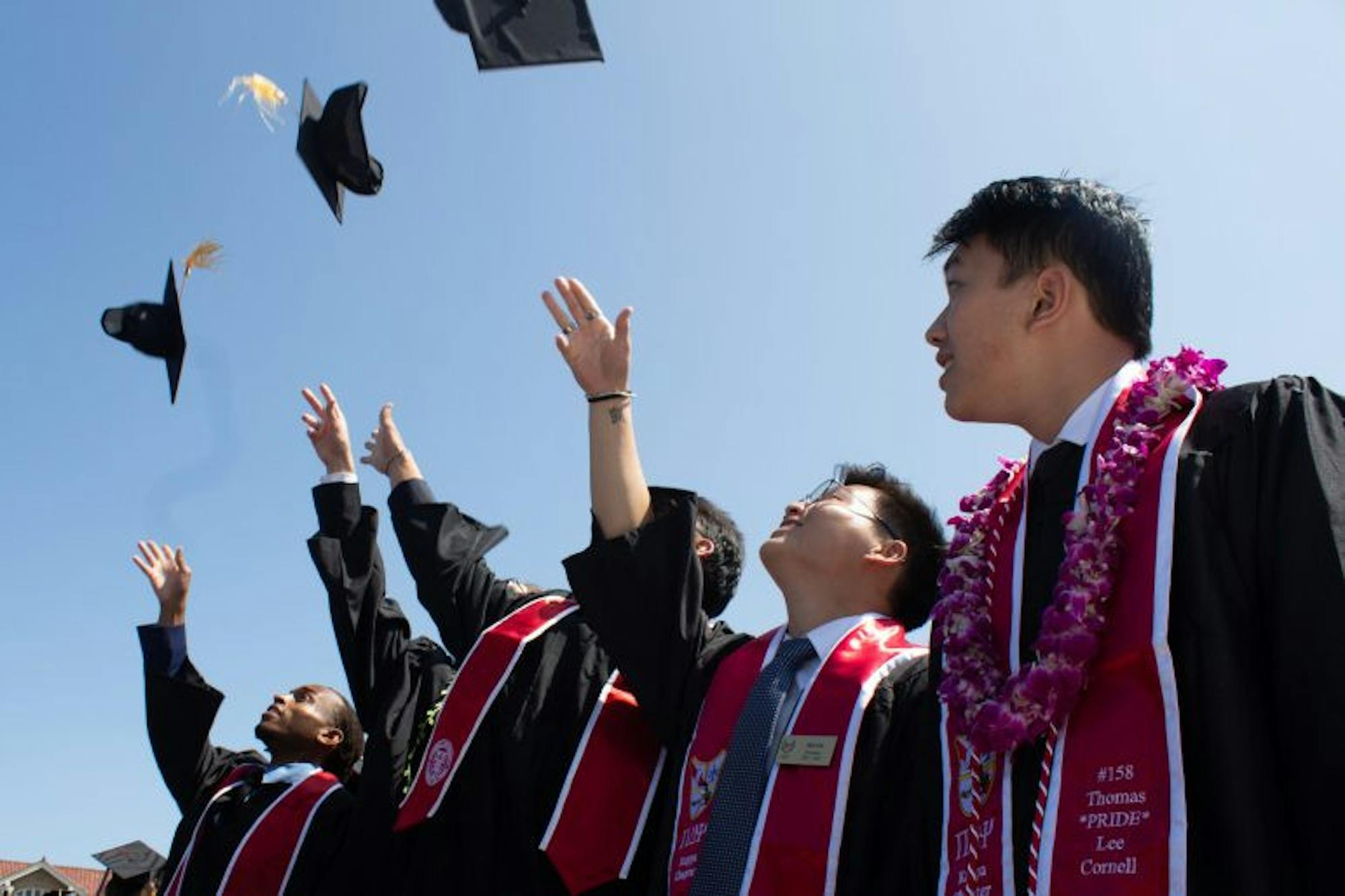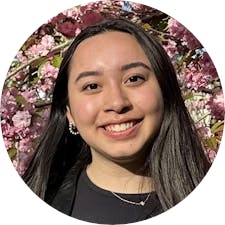On Saturday, May 27, more than 8,000 undergraduate and graduate students celebrated degree conferrals across two commencement ceremonies on Schoellkopf Field.
In a speech at the first commencement ceremony, President Martha Pollack applauded graduates’ demonstrated growth throughout their academic journeys and encouraged further courage in their post-graduate pursuits.
Pollack began by reflecting on her message to the members of the undergraduate class of 2023 at the 2019 New Student Convocation Address. At the convocation address, Pollack had prompted students to recognize that in a few short years, they would be back on Schoellkopf Field waiting to receive their degrees.
“I said that when [graduation] came around, you’d be different people,” Pollack said. “Your Cornell education would have helped you to develop not only a capable intellect but also a mature conscience [and] would have you not only for your careers but for your lives as citizens of your nation in the world.”
However, Pollack noted that such transformative growth would not occur without engaging in challenging academic and social opportunities. Pollack had asked the new undergraduates to connect with students from diverse backgrounds to actively listen to those with differing beliefs.
“But all of that [growth], I said, would happen only if you put in the effort, because education is not a passive activity,” Pollack said. “[So] I told you to take off your headphones. I asked you not to shut yourself off from what was around you.”
She had also reminded students that it was normal to occasionally struggle with Cornell’s rigorous education. Pollack noted that a Cornell degree is renowned largely in part because a Cornell education is challenging.
“If you never struggled here, it probably meant that you weren’t pushing yourself hard enough,” Pollack said. “I told you not to be afraid of the difficult or the uncomfortable, but to embrace new challenges [and] to learn from your failures.”

To Pollack, the journey of a Cornell student mirrors that of Dorothy in “The Wizard of Oz.”
“When you arrived here, like Dorothy in ‘The Wizard of Oz,’ you started down a path and you couldn’t see where it was going to end,” Pollack said. “And like Dorothy, you kept going, even as you met challenges along the way, some of which you’d never imagined.”
Pollack recalled watching “The Wizard of Oz” for the first time in second grade. At the time, she was fascinated but also puzzled by Dorothy’s journey from the Kansas prairie to Oz. While she enjoyed the songs and how the movie utilized color, she was terrified of the flying monkeys depicted in the film, which raised some interesting questions about the characters.
“I mean, I understood why the Tin Man wanted a heart. I certainly got why the Scarecrow wanted a brain. But what did it mean to want courage?” Pollack said. “Those monkeys were coming after Dorothy to bring her to the Wicked Witch of the West. How was this abstract idea of courage going to change that reality?”
Pollack then connected the flying monkeys to a faculty meeting around fifty years later, after she had been named president of Cornell. While talking to a group of faculty at her previous university, she was asked whether she was scared about her new position.
Pollack explained that not having any worries would have made her either arrogant or ignorant.
“But by then, I learned something that I hadn’t known when my understanding of courage was informed only by wicked witches and flying monkeys,” Pollack said. “I’d learned that courage doesn’t mean not being scared. It means having the capacity to move forward despite being scared.”
Furthermore, Pollack described that intentional and thoughtful risk-taking is key to affecting positive change in the world and establishing personal satisfaction. Pollack values higher education as a means to transform lives, which pushed her to take the presidency position despite her fears.
“It was the experience I had accumulated over time — doing things that were scary and that challenged me — that made me able and willing to take risks for the things that matter to me,” Pollack said. “And that gave me the courage I needed to move forward, just like it did [for] the Cowardly Lion, who, by the time he makes it back to the Emerald City, isn’t cowardly anymore at all.”
Pollack said she told this story since graduates were about to step into new roles — further education, a new job or taking time to explore.
“You’ve passed a milestone on your own yellow brick roads, and you’re heading out to do whatever is next … It’s scary,” Pollack said. “But if you try to arrange your whole life to be comfortable, if you try to avoid all the situations that make you uncomfortable, if you shy away from whatever scares you, I can assure you that you will not end up satisfied.”

Pollack described that a Cornell education includes learning skills beyond those necessary to obtain a diploma.
“You learned how to live in and appreciate a diverse community, to engage across differences, to listen to other voices and to speak your own mind,” Pollack said.
Pollack described that democracy depends on the ability and willingness to connect with people of different beliefs. To Pollack, a Cornell education gives graduates the skills to communicate with empathy.
“You’re going out into a world where many people feel their voices aren’t being heard,” Pollack said. “It takes courage to really listen to people who are saying things that are at odds with the beliefs you hold dearest. But at Cornell, you’ve developed the courage it takes to do that.”
Pollack encouraged graduates to draw upon the courage that they developed in their years at Cornell, regardless of the path that they follow.
“Perhaps what we all need is to seek comfort less, and courage more,” Pollack said. “Because when we understand the value — not only of our hearts and our brains — but also our courage, that’s when we’ll be able to do the most that we can with everything we sought and found in our own green city on the hill.”

Julia Senzon is a member of the Class of 2026 in the College of Agriculture and Life Sciences. She is the editor-in-chief of the 143rd Editorial Board and was the managing editor of the 142nd Editorial Board. She can be reached at jsenzon@cornellsun.com or 908-672-3047.











